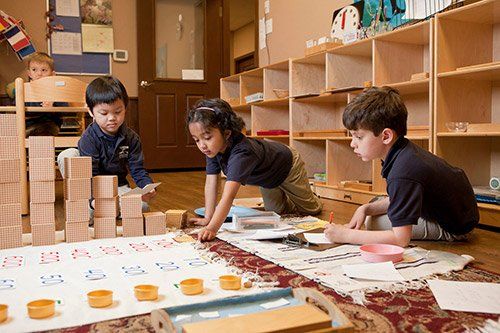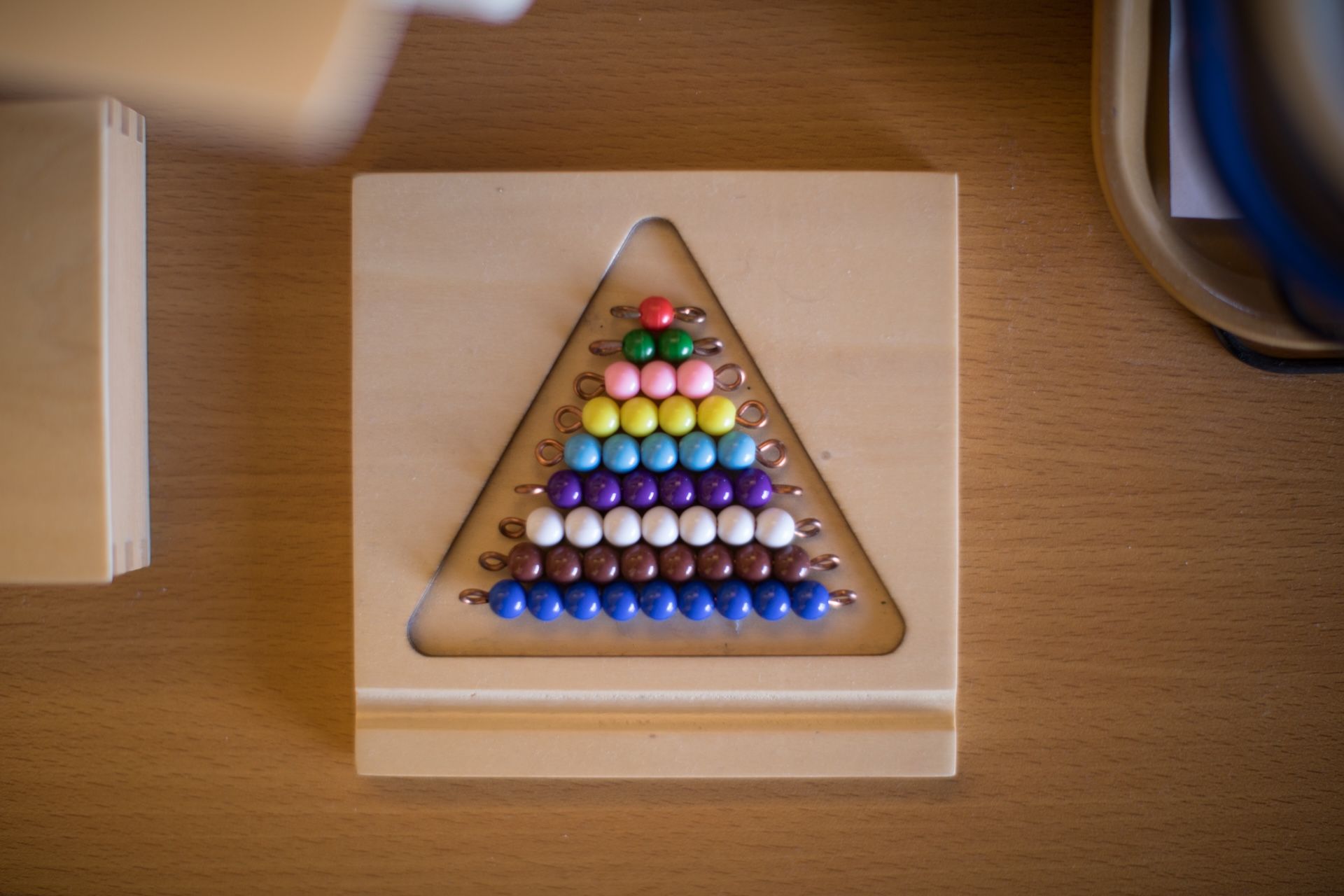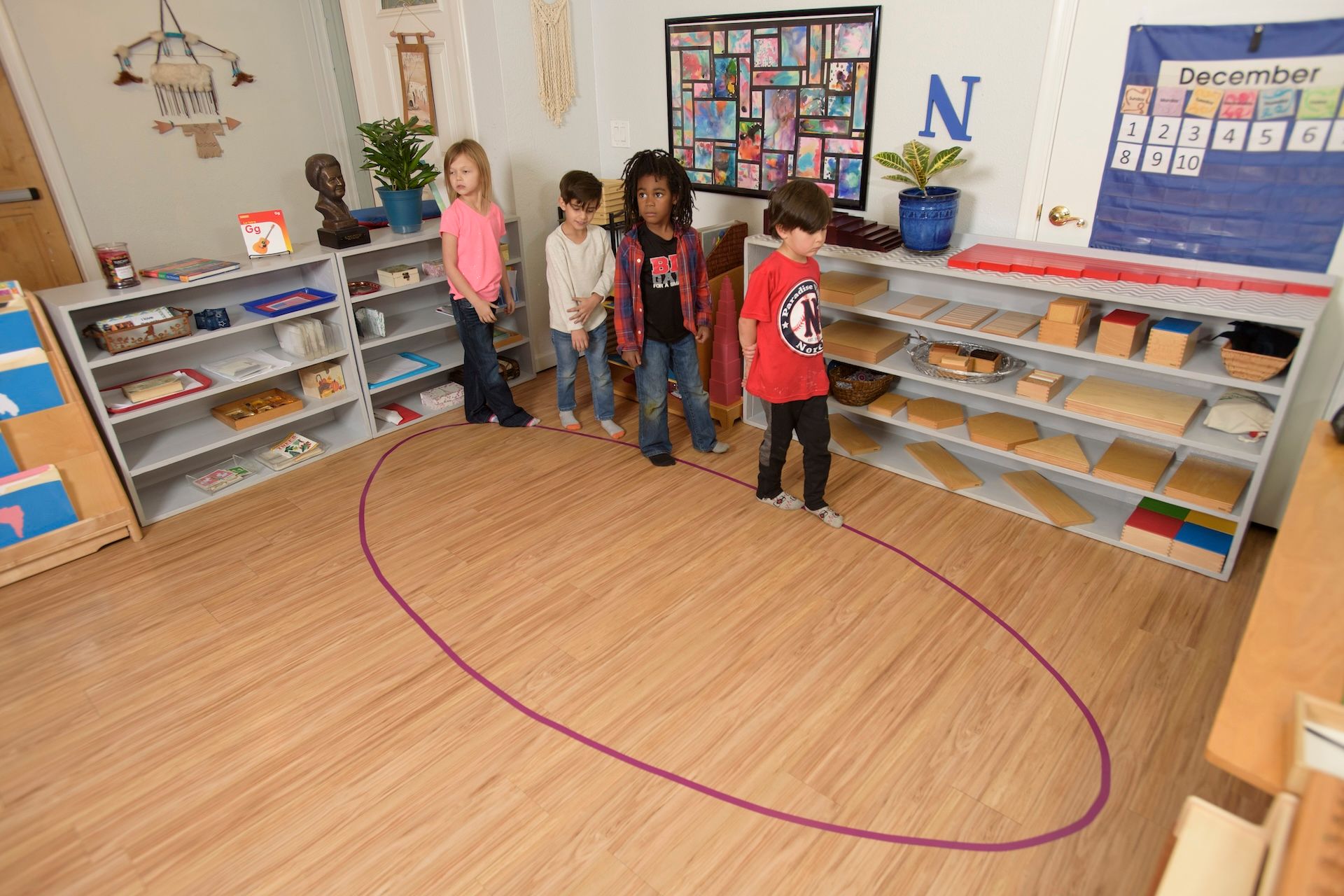The Montessori Method provides an education framework that respects the needs and individuality of each child. With this approach, children can engage in purposeful activity that allows them to develop and grow into responsible, competent, and self-motivated life-long learners. Knowing the benefits of an early Montessori education is the perfect place to start on your path to finding the best program for your child.

Focus is Put on Key Developmental Stages
A Montessori curriculum focuses on key developmental milestones of children up to five years of age. Music, sign language and story time are just a few of the works used to hone in on developing the younger student’s thinking and language skills. Older children focus on fine motor skills, arts and crafts, and completing practical life activities, such as food preparation and cleaning (i.e. sweeping or dusting).
Learning is Child-Centered
Students can enjoy a classroom and curriculum designed around their particular needs and abilities. We provide accomplishable “works” that can be explored and learned at their pace and on their terms. Unlike traditional classrooms or daycares, students are given ample time to engage with each work until they master it. Furniture is sized for the children and all the materials and tools needed to learn are within their reach.
Cooperative Learning is Encouraged
Montessori offers a multi-age classroom that reflects a family structure. Older children become mentors and role models to the younger children, which helps in two main ways: the younger children gain confidence from the support of their older peers, and the older children reinforce their knowledge by teaching those younger than them. This interaction of working together creates a sense of community.
Self Satisfaction by Intrinsic Motivation
The Montessori way teaches children that learning is its own reward. Students are supported in becoming active seekers of knowledge and encouraged to pursue answers to their own questions. When given the opportunity to nurture their own intrinsic motivation, children develop order, learn self-discipline, gain independence, flourish in creativity, and learn how to self-correct and self-assess all on their own. The result is the excitement and enjoyment of solving a problem or mastering a new skill.
Hours
MONDAY - FRIDAY
HALF DAY: 8:30a – 12 noon
ACADEMIC DAY: 8:30a – 3:30p
EARLY CARE: 7:00a – 8:30a
AFTER CARE: 3:30p – 6:00p
OFFICE: 8:00a - 4:00p
Programs
Connect
Pebblecreek Montessori




